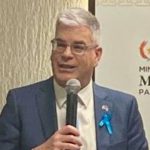When the COVID shots were first introduced, the U.S. Centers for Disease Control and Prevention made several claims about them that have since been proven completely false.
They claimed the mRNA in the shot would remain in and only affect the cells around the injection site. They also claimed the mRNA and resulting spike protein wouldn’t last long in your body. The mRNA, they said, would vanish within “a few days,” and the spike protein produced by your cells would be eliminated within “a few weeks.”
As it turns out, virtually every cell in your body is exposed to the mRNA and can remain intact for a month or more. Ditto for the spike protein your cells produce. Spike protein has been found in the brains of people with encephalitis (brain inflammation)1 and in jab-induced shingles lesions.2 It can bioaccumulate in several organs,3,4 including reproductive organs.
Both mRNA and spike protein have been found in lymph nodes more than 60 days post-jab.5 Full-length mRNA has also been shown to circulate in people’s blood6 for up to 28 days post-injection,7 and it’s been detected in breastmilk.8
In early August 2022, the CDC suddenly deleted those statements from its website — probably because they realized their lies were catching up to them. The cleanup effort was caught, however. Disclose TV exposed the deletion on its Twitter account,9 with an archived link showing the CDC’s original webpage.
Free Spike Protein Linked to Jab-Induced Myocarditis
From the get-go, physicians and scientists warned that the SARS-CoV-2 spike protein was the most toxic part of the virus, and hence making your cells produce it for an undetermined amount of time could be an unmitigated disaster. Their warnings were “debunked” and censored, but mounting evidence now proves their concerns were valid — and should have been shared to prevent the loss of life.
We now have case reports, studies and autopsy findings showing that people suffering from post-jab myocarditis have mRNA-induced spike proteins in their hearts and blood.
Interestingly, a January 2023 study10 in the journal Circulation found “extensive antibody profiling and T-cell responses” both in those who developed post-jab myocarditis and asymptomatic jabbed controls.
The primary difference between those who developed symptoms of myocarditis and those who didn’t was that symptomatic patients had “markedly elevated levels of full-length spike protein unbound by antibodies” in their plasma. Those who remained asymptomatic had no free spike protein in their blood. This would suggest that free-floating spike protein is a profoundly serious problem. As concluded by the authors:
“Immunoprofiling of vaccinated adolescents and young adults revealed that the mRNA vaccine-induced immune responses did not differ between individuals who developed myocarditis and individuals who did not.
However, free spike antigen was detected in the blood of adolescents and young adults who developed post-mRNA vaccine myocarditis, advancing insight into its potential underlying cause.”
Autopsy Reports Confirm Jab-Related Myocarditis
mRNA programming the heart cells to produce spike protein is also profoundly bad news. A case report11 published in September 2022 describes the case of a 55-year-old man who died from acute myocardial infarction and lymphocytic myocarditis four months after a dose of Pfizer. As his first dose, he’d received the AstraZeneca shot. According to the author:
“SARS-CoV-2 Spike protein, but not nucleocapsid protein was sporadically detected in vessel walls by immunohistochemical assay … These findings indicate that myocarditis, as well as thrombo-embolic events following injection of spike-inducing gene-based vaccines, are causally associated with a injurious immunological response to the encoded agent.
Because of the fact that the immune response to a first gene-based vaccination is very low in comparison with the immune response to the second vaccination, the found adverse events has rather to be attributed to the mRNA-based second vaccination as to the initial vector-based one.”
A Korean report12 published in July 2021 describes the case of a 22-year-old healthy male military recruit who developed chest pain five days after his first Pfizer dose and died just seven hours later. The primary cause of death was determined to be “myocarditis, causally associated with the BNT162b2 vaccine.” Here, the primary autopsy findings were:
Myocarditis predominantly involving the atrial wall, with neutrophil and histiocyte predominance
Noninflammatory single-cell necrosis
Diffuse contraction band necrosis (CBN) throughout the myocardium, predominantly in the left ventricle. CBN is a type of uncontrolled cell death that can occur during reperfusion (reoxygenation). Basically, the tissue is damaged when the blood returns into the tissue after a period of ischemia or lack of oxygen
Enlargement of the heart
The myocarditis was determined to be “histologically different from viral or immune-mediated myocarditis in that the inflammatory infiltrates were predominantly neutrophils and histiocytes, rather than lymphocytes.”
Neutrophils are a type of white blood cells that act as your immune system’s first line of defense. Histocytes are immune cells normally found in many areas of your body, but when they move into tissues where they don’t belong, such as your heart, they damage those tissues, which is what appears to have happened here.
A November 2022 paper describing the autopsy findings from five people who “died suddenly” within seven days of their COVID jabs concluded that most of the deaths were caused by acute arrhythmogenic cardiac failure. “Thus, myocarditis can be a potentially lethal complication following mRNA-based anti-SARS-CoV-2 vaccination,” the authors concluded.
Teenage Boys Killed by COVID Jab
A report13 detailing the autopsies of two teenage boys found dead in their beds three and four days after their second dose of Pfizer also concluded jab-induced heart damage was to blame.
The autopsies primarily sought to determine whether the myocarditis described in these instances had the typical histopathology of myocarditis. It did not. Instead, both cases more closely resembled a catecholamine-induced injury. As described by the authors:
“The myocardial injury seen in these postvaccine hearts is different from typical myocarditis and has an appearance most closely resembling a catecholamine-mediated stress (toxic) cardiomyopathy …
The microscopic findings are not the alterations seen with typical myocarditis. This suggest a role for cytokine storm, which may occur with an excessive inflammatory response, as there also is a feedback loop between catecholamines and cytokines.”
As in the case of the Korean military man, both boys had evidence of CBN which, as explained earlier, is cell death that typically occurs during reperfusion, when blood flow temporarily ceases and then returns. The actual damage occurs when blood reenters the tissue. As described in this report:14
“Both teenage boys had similar clinical presentations with no obvious cardiac symptoms. Their histopathology did not demonstrate a typical myocarditis. In those instances, one sees lymphocytic (or giant cell) infiltrates with adjacent myocyte necrosis; changes such as hypereosinophilic myocytes and contraction bands are absent.
In these two postvaccination instances, there are areas of contraction bands and hypereosinophilic myocytes distinct from the inflammation.
This injury pattern is instead similar to what is seen in the myocardium of patients who are clinically diagnosed with Takotsubo, toxic, or stress cardiomyopathy, which is a temporary myocardial injury that can develop in patients with extreme physical, chemical, or sometimes emotional stressors.
Stress cardiomyopathy is a catecholamine-mediated ischemic process seen in high catecholamine states in the absence of coronary artery disease or spasm. It has also been called ‘neurogenic myocardial injury’ and ‘broken heart syndrome.’
Surges in catecholamines may have several triggers (fight/flight response, adrenal pathology, etc). Proposed mechanisms for catecholamine-mediated stunning in stress cardiomyopathy include epicardial spasm, microvascular dysfunction, hyperdynamic contractility with midventricular or outflow tract obstruction, and direct effects of catecholamines on cardiomyocytes.
Catecholamine-mediated myocardial stunning may be due to direct myocyte injury, as elevated catecholamines decrease the viability of myocytes through cyclic adenosine monophosphate–mediated calcium overload.
Catecholamines also are a potential source of oxygen-derived free radicals, which can interfere with sodium and calcium transporters, possibly resulting in myocyte dysfunction through increased transsarcolemmal calcium influx and cellular calcium overload …
We suspect that the acute cardiac changes seen in these two boys are the result of epinephrine-mediated effects on cardiomyocytes … This postvaccine reaction may represent an overly exuberant immune response, with the myocardial injury mediated by similar immune mechanisms to those described with SARS-CoV-2 and multisystem inflammatory syndrome cytokine storms …
These two clinical histories support the etiology of the acute myocardial injury as a primary factor, not a secondary agonal or postresuscitative artifact … Cytokine storm has been described with an excessive and uncontrolled inflammatory response, and there is a feedback loop between catecholamines and cytokines.
Clinical complications may include cardiac compromise, respiratory distress, and hypercoagulation. The myocardial injury seen in these postvaccine hearts has a similar histologic appearance to catecholamine-mediated stress cardiomyopathy and severe SARS-CoV-2 infection, including myocarditis, which is associated with cytokine release syndrome.
Recognition that these instances are different from typical myocarditis and that cytokine storm has a known feedback loop with catecholamines may help guide screening, diagnosis, and therapy.”
Myocarditis — New Top Cause of Death Among COVID-Jabbed
Have our federal health agencies destroyed the hearts of tens of thousands of young Americans by pushing and mandating these shots? The preponderance of evidence suggests this is most likely. A recent survey15 by Steve Kirsch suggests myocarditis and sudden death are now two of the top causes of death in the U.S., but only among those who got the COVID jab.
In early October 2022, Florida Surgeon General Dr. Joseph Ladapo issued updated COVID jab guidance,16,17 recommending men between the ages of 18 and 39 abstain from getting any more shots, as data show an 84% increase in heart-related death within 28 days of injection. Men over the age of 60 have a 10% increased risk of cardiac-related death within 28 days.
The mass injection campaign has already shaved more than three years off the U.S. life expectancy, and in the future, I predict we’ll see even further drops as jab-related heart problems continue to take their toll.
As reported by Edward Dowd in his book “Cause Unknown: The Epidemic of Sudden Deaths in 2021 and 2022,” excess death rates began to skyrocket in the 26- to 41-year-old group shortly after the COVID jabs were rolled out.18 Between February 2021 and March 2022 alone, millennials experienced the equivalent of a Vietnam war with more than 60,000 excess deaths. Mass injection is the only thing that can account for this sudden rise in mortality in this age group.
When young people are killed off en masse like this, the overall life expectancy will drop rather massively, and if the systemic damage caused by these shots continue for years on end, we could be facing a rather noticeable depopulation event.
Sudden deaths among high-performance athletes have also skyrocketed by nearly 1,700%,19 and COVID jab mandates is the only novel factor that’s come into play. Approximately 1,148 professional and amateur athletes suffered a lethal cardiac event in 2021 and 2022, giving us an annual average death rate of 574 for those years.20,21,22,23,24,25 Meanwhile, the historical annual average has been between 2826 and 29.27
When young people are killed off en masse like this, the overall life expectancy will drop rather massively, and if the systemic damage caused by these shots continues for years on end, we could be facing a rather noticeable depopulation event.
Resources for Those Injured by the COVID Jab
If you got one or more jabs and suffered an injury, first and foremost, never ever take another COVID booster, another mRNA gene therapy shot or regular vaccine. You need to end the assault on your body.
The same goes for anyone who has taken one or more COVID jabs and had the good fortune of not experiencing debilitating side effects. Your health may still be impacted long-term, so don’t take any more shots.
When it comes to treatment, there are still more questions than answers, and most doctors are beyond clueless about what to do — in part because they never agreed or bothered to provide early treatment for COVID and therefore don’t understand how different medicines and supplements impact the spike protein.
So far, it seems like many of the treatments that worked against severe COVID-19 infection also help ameliorate adverse effects from the jab. This makes sense, as the toxic, most damaging part of the virus is the spike protein, and that’s what your whole body is producing if you got the jab.
So, eliminating the spike protein your body is continuously producing is a primary task to prevent and/or address post-jab injuries. The two preferred remedies for this are hydroxychloroquine and ivermectin. Both of these drugs bind and thereby facilitate the removal of spike protein.
The Front Line COVID-19 Critical Care Alliance (FLCCC) has developed a post-vaccine treatment protocol called I-RECOVER. Since the protocol is continuously updated as more data become available, your best bet is to download the latest version straight from the FLCCC website at covid19criticalcare.com28 (hyperlink to the correct page provided above).
The World Health Council has also published lists of remedies that can help inhibit, neutralize and eliminate spike protein. Natural substances that prevent spike protein from binding to your cells include Prunella vulgaris, pine needle tea, emodin, neem and dandelion extract.
Spike protein neutralizers, which prevent the spike from damaging cells, include N-acetylcysteine (NAC), glutathione, fennel tea, star anise tea, pine needle tea, St. John’s wort, comfrey tea and vitamin C. A March 2022 review paper29 suggests combating the neurotoxic effects of the spike protein using luteolin and quercetin.
Time-restricted eating (TRE) and/or sauna therapy can also help eliminate toxic proteins by stimulating autophagy. Several additional detox remedies can be found in “World Council for Health Reveals Spike Protein Detox.”
Other Helpful Treatments and Remedies
Other treatments and remedies that may be helpful for COVID jab injuries include:
• Hyperbaric oxygen therapy, especially in cases involving stroke, heart attack, autoimmune diseases and/or neurodegenerative disorders. To learn more, see “Hyperbaric Therapy — A Vastly Underused Treatment Modality.”
• Lower your omega-6 intake. Linoleic acid is consumed in amounts ten times of ideal in well over 95% of the population and contributes to massive oxidative stress that impairs your immune response. Seed oils and processed foods need to be diligently avoided. You can review my previous post for more information.
• Pharmaceutical grade methylene blue, which improves mitochondrial respiration and aid in mitochondrial repair. It’s actually the parent molecule for hydroxychloroquine. A dose of 15 to 80 milligrams a day could go a long way toward resolving some of the fatigue many suffer post-jab.
It may also be helpful in acute strokes. The primary contraindication is if you have a G6PD deficiency (a hereditary genetic condition), in which case you should not use methylene blue at all. To learn more, see “The Surprising Health Benefits of Methylene Blue.”
• Near-infrared light, as it triggers production of melatonin in your mitochondria30 where you need it most. By mopping up reactive oxygen species, it too helps improve mitochondrial function and repair. Natural sunlight is 54.3% infrared radiation,31 so this treatment is available for free. For more information, see “What You Need to Know About Melatonin.”
• Lumbrokinase and serrapeptidase are both fibrinolytic enzymes taken on an empty stomach one hour before or two hours after to help reduce the risk of blood clots.





